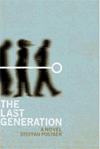Letter to my Professor at Berkeley. Just because…
November 22, 2020
My philosophy as it relates to diagnosis and treatment has evolved since I first became clean and sober in 2003. While I began (and continue) my path to recovery as a member of Alcoholics Anonymous, I have never completely accepted a number of its foundational tenants. For example, I remain uncomfortable ascribing to the disease model espoused by AA (and elsewhere). I believe every person with a substance use disorder played a major role in creating their problem (routinizing bad decisions), and they will need to do the same in recovery (changing the behavior). I recognize the usefulness in calling alcoholism a disease in terms of framing the therapeutic aspects of 12-step recovery models and in determining healthcare policies, qualifying for insurance, etc. Like with any disease, I also believe that alcoholism and drug addiction are progressive in nature.
As a counselor, I adhere to the five ethical principles: Autonomy, Beneficence, Fidelity, Justice and Nonmaleficence. Realizing that while each has specificities all are beholden to the other. Indeed, one may be in conflict with another, such as confidentiality and the potential for imminent harm. Untangling a sticky ball requires a measured hand. In a given situation, if right and wrong are not crystal clear, my intent will be to discuss options and scenarios with my peers before acting. One of the most important words booming from your lesson plan: CONSULT! I look forward to that collaboration.
The first thing I learned in Journalism school there is always two sides to a story. Likewise there are multiple stories for every individual who suffers from alcohol or chemical dependency. A person’s drug narrative is often shaped by their genealogy as well as environment. Things like family structure (or lack thereof), social groups, ethnic and cultural norms and other issues almost always play a role in the formation of a substance use disorder. How could they not? Therefore, a counselor worth his or her salt must be culturally competent beyond what passes for acceptable in today’s divisive political climate. Working in the field I know this is an area I must continue to develop, letting go preconceived notions I may be harboring.
Specifically, regarding your class, I very much appreciated the flow, tone and manner of each session. Given the myriad technology issues and the upside-down nature of 2020, I found this course almost therapeutic! Yes, it was a lot of work but the curriculum was such that I could immerse myself in it, whether absorbing content or creating it. So… thank you!
Like many of my classmates reported I also enjoyed and appreciated the role-playing activity. “Practice” like that is always appreciated. Yet, my favorite part of the course was/is the active discussion concurrent to your lectures. Spirited discussion with peers and professor works for me; I like learning this way!
Creating my presentation piece was, dare I say, fun. Immersing myself into the content was of course beneficial from a learning perspective. But the assignment was stimulating from a creative perspective as well. Making slides. Creating graphics. Presenting to the team. Giving and receiving these presentations was time well spent.
Finally, thank you Dr. ——- for your efforts in trying to keep the Certification Program going. Whatever happens, I appreciate knowing my commitment to this coursework is valued beyond its profit margins or lack thereof.



 The Happy Soul Industry
The Happy Soul Industry The Last Generation
The Last Generation